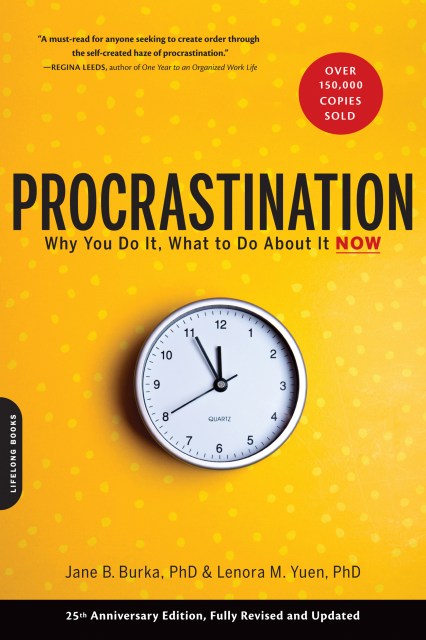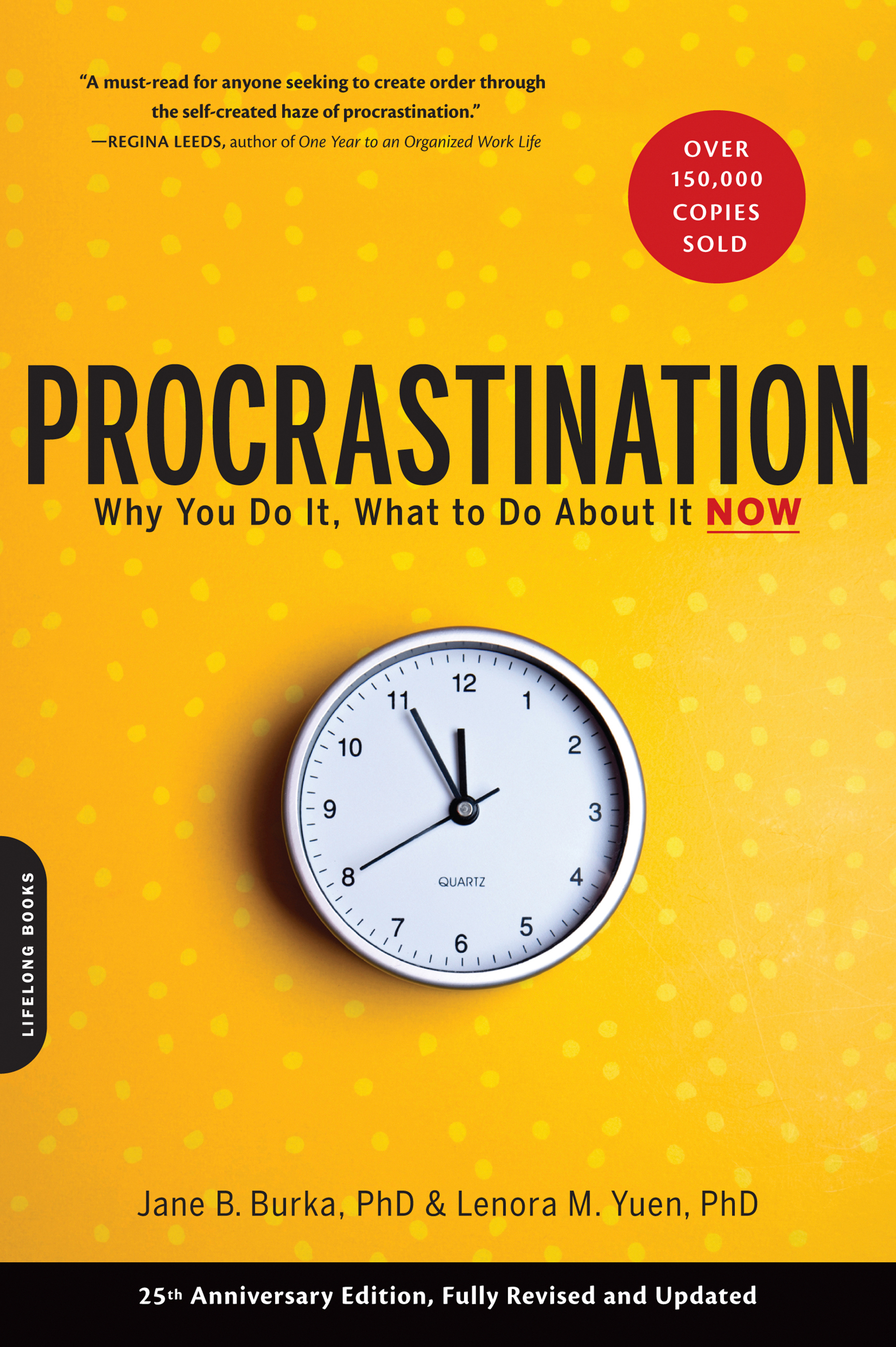Promotion
Use code MOM24 for 20% off site wide + free shipping over $45
Procrastination
Why You Do It, What to Do About It Now
Contributors
By Jane Burka
By Lenora M. Yuen
Formats and Prices
Price
$11.99Price
$15.99 CADFormat
Format:
- ebook $11.99 $15.99 CAD
- Trade Paperback $19.99 $25.99 CAD
This item is a preorder. Your payment method will be charged immediately, and the product is expected to ship on or around April 2, 2007. This date is subject to change due to shipping delays beyond our control.
Also available from:
A practical, tested program to overcome procrastination by achieving set goals, managing time, enlisting support, and handling stress.
A must have for anyone who puts things off until tomororw. Based on their workshops and counseling experience, psychologists Jane B. Burka and Lenora M. Yuen offer a probing, sensitive, and at times humorous look at a problem that affects everyone: students and scientists, secretaries and executives, homemakers and salespeople. Wise, effective, and easy-to-use, Procrastination identifies the reasons we put off tasks-fears of failure, success, control, separation, and attachment-and their roots in our childhood and adult experiences. Burka and Yuen even provide tips on living and working with the procrastinators you may know.
Genre:
-
"This book succeeds on many levels. It is a useful self-help guide for general readers and the lay public. Mental health professionals...will find innovative ideas and sage advice."Metapsychology Online Reviews
-
"Read it. Now."Louisiana's Acadiana Lifestyle
-
"[A] deeply perceptive book...Show[s] you how to fix this vexing, life-sapping problem."Business Today (NC)
- On Sale
- Apr 2, 2007
- Page Count
- 240 pages
- Publisher
- Da Capo Lifelong Books
- ISBN-13
- 9780738211305
Newsletter Signup
By clicking ‘Sign Up,’ I acknowledge that I have read and agree to Hachette Book Group’s Privacy Policy and Terms of Use







